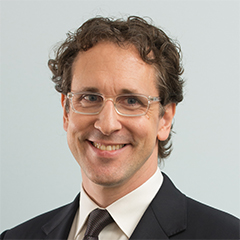Entrepreneurs, high-net-worths and nomadic remote workers opt for domicile diversification and a new form of global mobility
COVID-19 has led to a spike in affluent entrepreneurs and international investors building up a diversified domicile portfolio made possible through residence-and citizenship-by-investment programmes. A similar, albeit less costly trend, has been digital nomad visa programmes offered by governments across the world, as previously reported by The Freelance Informer.
What are the benefits of domicile diversification?
Ultra-high-net-worth individuals (UNHWI) and their families from some of the world’s most advanced economies are opting for an investment migration portfolio of complementary citizenship and residence options. They are doing this to increase the quality of their lives and mitigate risk in terms of where they can live, work, and invest, according to residency and citizenship specialist Henley & Partners.
The demand has risen in a bid to overcome the limitations and risks of being restricted to a single residence. In the past eight months, Henley & Partners has seen a 32% increase in the daily average number of enquiries compared to the first six months of 2020.
Which nationalities are on the move?
The shifts in the predominant nationalities of entrepreneurs who are interested in investment migration are eye-opening — with the most astonishing being a 192% leap in enquiries from US citizens in 2020 compared to the previous year, said the report.
“Nowhere close to that, but no less remarkable, there was a 34% increase in enquiries from Canadians, a 30% rise in enquiries from Australians, and 29% and 26% more enquiries from UK and French nationals, respectively,” according to Henley & Partners.

Spreading residential risk
“It’s a case of not putting all your eggs in one basket,” says Dr Juerg Steffen, CEO of Henley & Partners. “The majority of options include the whole family, and many extend to parents and others even to grandparents. The more jurisdictions you and your family can access, the more diversified your assets and opportunities, and the lower your exposure to country-specific risk and global volatility.”
The investment migration specialist says that for decades, it has been accepted best practice to invest in different regions and different asset classes, from equities to real estate, to spread the risk and find the greatest value. But what about where you reside? he asks.
“The same principle applies. In an increasingly unpredictable world, you need to diversify your geographical domicile options to guarantee and enhance long-term success by securing access to top-quality education and healthcare, for example. You also need to reduce your exposure to risks such as higher crime, increased tax rates, political instability, social turmoil, poor governance, or unexpected policy changes,” says Steffen.
Does domicile diversification work for families?
“Our clients are realising the compounded and multi-generational benefits of acquiring several citizenships and/or residences to expand the future potential for their global families,” says Dominic Volek, Group Head of Private Clients at Henley & Partners.
Volek, goes on to provide some examples. An Indian UHNW entrepreneur residing in Dubai, with family businesses in Southeast Asia, India, and the Middle East may want to acquire real estate in Europe, where the entrepreneur would also wish to acquire residence. However, at the same time, they would like their children to live and study in the UK in a few years’ time, so while applying for the UK Investor Immigration Programme they also apply for the Portugal Golden Residence Permit Programme.
After five years as a legal resident of Portugal, where the physical presence requirement is limited, they and their children can be eligible to apply for Portuguese citizenship, which would then provide them with settlement freedom throughout the EU.
Can multi-generational and blended families apply for domicile diversification?
In terms of options for extended families, Volek says, “We are seeing more UHNW investors wanting to include their siblings, parents, and grandparents in their investment migration applications. There are many options that cater for large, multi-generational families, and the beauty is that family members don’t necessarily have to be in the same location.”
He provides another example. “A successful tech entrepreneur could apply for Australia’s Global Talent Independent Visa, or any of Australia’s residence-by-investment options for that matter, to obtain permanent residence there.
His or her children, meanwhile, have their sights set on studying in Europe, so they also apply for the Greece Golden Visa Programme, which has no residence requirement. And since December 2020, minors may apply for a Greek Golden Visa as the main applicant through purchasing real estate or opening a time deposit bank account in Greece, so they might consider that option for their children.”
It doesn’t stop there. “The retired parents, on the other hand, would prefer to live in Thailand, so they also apply for the Thailand Elite Residence Program, which has an option that includes dependents, which may include legitimate parents, stepparents, a spouse (including by civil union), children, and stepchildren,” he says.
Volek goes on to say that the Thailand Elite Residence Programme is a top choice for supplementing any investment migration programme.
“Thailand is a safe, prosperous country with an excellent quality of life and there is no minimum stay requirement,” he says.
Dr. Steffen says developing a strong investment migration portfolio takes careful planning and it takes time. “You don’t want to wait until it’s too late. You want to take a strategic approach, not a mad dash to the fire exit when things go wrong in your current place of residence,” he says.
Considering moving to live and work abroad as a freelancer or digital nomad? You might find these articles interesting:
Goodbye IR35, hello Estonia? – Freelance Informer
For a list of Nomad Visa Programmes click here


